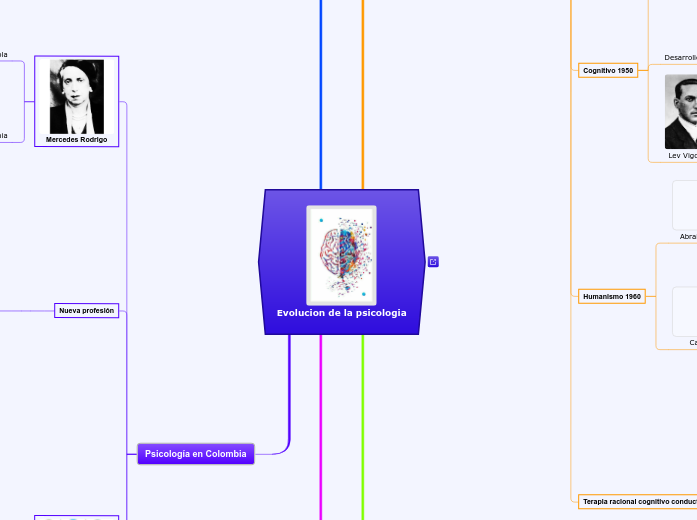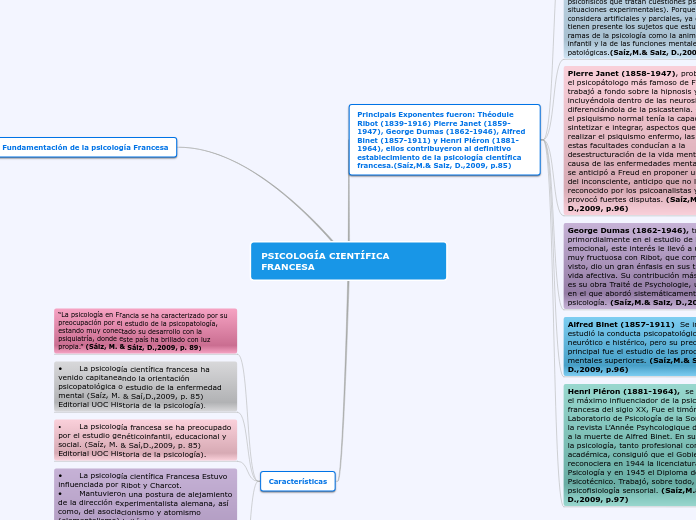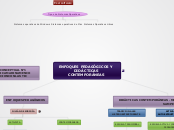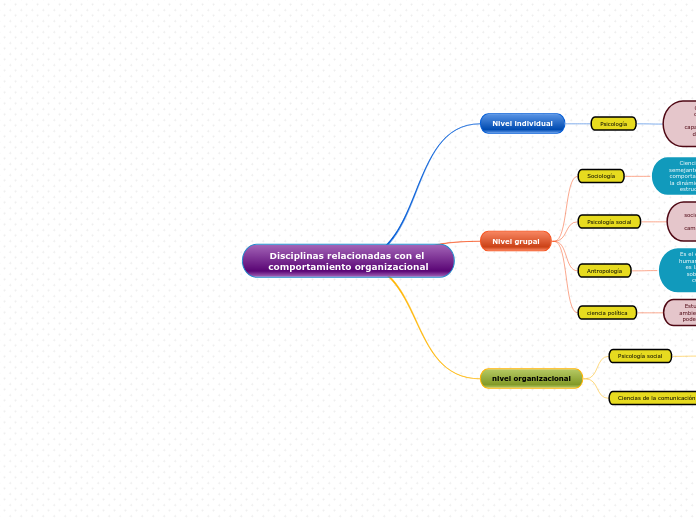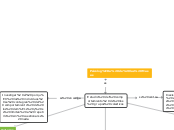Evolucion de la psicologia
The part of speech is a category to which a word is assigned according to its syntactic functions. In English the main parts of speech are noun, pronoun, adjective, determiner, verb, adverb, preposition, conjunction, and interjection.
Video
A preposition is one of the most exciting parts of grammar. A preposition is used to describe the location of something in relation to something else.
https://www.youtube.com/watch?v=2YdfOLWjPSE
A group of words used with the force of a single preposition is called phrase preposition.
Psicología en Colombia
An adverb is used to describe a verb, but it can also describe an adjective or another adverb.
Adverbs normally help paint a fuller picture by describing how something happens.
Creación del programa en
otras universidades
Pontificia Universidad
Javeriana (Cali), 1984
Fundación Universitaria Konrad
Lorenz (Bogotá), 1981
Universidad del Valle (Cali), 1976
Universidad de San Buenaventura
(Medellín), 1972
Universidad del Norte
(Barranquilla), 1971
Universidad Nacional de Colombia,
(Bogotá), 1947
Subtopic
Celebración
The intensifiers strengthen adverbs adjectives and adverbs and down- toners make them weaker.
Noviembre 20 1947
Día del psicólogo
En Colombia
Comienzos de la psicología
Como carrera profesional
Vista desde otro ámbito
Nueva profesión
Mercedes Rodrigo
Crea la sección de la psicotecnia
Inicio de la psicología y la investigación
en Colombia
Psicóloga española
Invitada de la Universidad Nacional
Creo el instituto de la
psicología aplicada
Primeros psicólogos
colombianos
Primeros exponentes
A numeral is a word or phrase that describes a numerical quantity.
Some theories of grammar use the word 'numeral' to refer to cardinal numbers that act as a determiner to specify the quantity of a noun, for example the 'two' in 'two hats'.
Jhon Watson America
Experimentos con humanos
Ya no se practica con personas
Condicionamiento a través de animales
Escuela funcionalismo
Algunos causan miedo
Aprender por condiconamiento
Psicología animal y humana
Influenciado por
Condicionamiento animal
Psicólogo
Ayudante del instructor
Psicología animal
Wllhem Wundt Europa
Médico
Primer laboratorio psicológico
Luces, sonidos, oleres fuertes
Alteraran el comportamiento de la persona
Chequeos permanentes
Camara de Wundt
Aparece la psicología clínica
Padre psicología experimental
Aspectos importantes
Subjetivo(percepción)
Escuela estructuralismo
Referencias
A pronoun is a word that can be used in place of a noun, typically after the noun itself has already been stated.
Una historia de la psicología en. Gustavo La Rotta 2020 Tomado de la pagina Colombiahttps://www.youtube.com/watch?v=2YdfOLWjPSE
Alarcón, Reynaldo. (2014). Ardila, R. (2013). Historia de la Psicología en Colombia. Bogotá: Editorial Manual Moderno.. Revista de Psicología (PUCP), 32(2), 387-393. Recuperado en 16 de octubre de 2021http://www.scielo.org.pe/scielo.php?script=sci_arttext&pid=S0254-92472014000200008
Relative pronouns are used to add more information to a sentence. Which, that, who (including whom and whose), and where are all relative pronouns.
Orígenes de la psicología profesional en Colombia: la significación histórica del 20 de noviembre de 1947 Tomado de https://revistas.unal.edu.co/index.php/psicologia/article/view/16345
Interrogative pronouns are used in questions. Although they are classified as pronouns, it is not easy to see how they replace nouns. Who, which, what, where, and how are all interrogative pronouns.
https://www.canva.com/design/DAEW_N97eh0/46DjMmtRIXxNcm1EKqJKIA/edit
Reciprocal pronouns are used for actions or feelings that are reciprocated. The reciprocal pronouns are each other and one another.
Sigmund Freud el padre del psicoanálisis Gravalda. 2019 Tomado de https://historia.nationalgeographic.com.es/a/sigmund-freud-padre-psicoanalisis_14704
A reflexive pronoun ends with ...self or ...selves and refers to another noun or pronoun in the sentence (usually the subject of the sentence). The reflexive pronouns are myself, yourself, herself, himself, itself, ourselves, yourselves, and themselves.
https://tauniversity.org/sites/default/files/teoria_cognitiva_y_sus_representantes.pdf
Demonstrative pronouns are used to demonstrate (or indicate). This, that, these, and those are all demonstrative pronouns.
https://www.canva.com/design/DAEXGgqWt5o/aCMhGMiHHjJ-1UxtMZfwMQ/edit
Possessive pronouns are used to show possession. The possessive pronouns are mine, yours, his, hers, ours, and theirs.
https://www.canva.com/design/DAEXRP_KnI4/ha9SkhBlSjEohFXKCo5gGA/edit
The personal pronouns are I, you, he, she, it, we, they. More often than not (but certainly not always), they replace nouns representing people.
Corrientes psicológicas
A verb is an action word or 'doing' word that signifies movement in some way.
Terapia racional cognitivo conductual
Albert Ellis
TRE para entender el
comportamiento externo
TREC para entender los cambios
cognitivos y emocionales
Esquema ABC
A: presentar un evento
B: creencia respecto al evento
C: consecuencias conductuales
y emocionales
Terapia racional emotiva conductual (TREc)
Aaron Beck
Diseñado para tratar
la depresión
Identificar errores cognitivos
(Pensamientos absolutistas)
Dejarse guiar por el terapeuta
Cambiar lo cognitivo y conductual
que esta mal en el individuo
Humanismo 1960
An auxiliary verb helps the main (full) verb and is also called a 'helping verb.' With auxiliary verbs, you can write sentences in different tenses, moods, or voices.
Carl Rogers
Comprende las enfermedades
mentales
El centro de atención es el
cliente
Ya que el sabe y conoce sus
lo que le aqueja
Escuchar y comprender lo que dice
Abraham Maslow
Padre del humanismo
Motivación para las necesidades
humanas
Acomodación de las necesidades
manera jerárquica
Motivación y respeto por si mismo
Cognitivo 1950
A participle is a verb form that can be used as an adjective or to create a verb tense. There are two types of participles: Present participle (ending -ing) and Past participle (usually ending -ed, -d, -t, -en, or -n).
Lev Vigotsky
Desarrollo mediante interacción
social
Aprendizaje mediante el entorno
Se aprende mas en conjunto
El desarrollo se da mediante
cada cultura y ambiente
Desarrollo intelectual por etapas
Empieza en la niñez
Finaliza en la adultez
Aprendizaje por medio de los sentidos
Paso a nuevas teorias y estudios
Jean Piaget
Pionero de la teoría cognitiva
Se aprende por medio del lenguaje
Conductismo 1920
A modal is a type of auxiliary (helping) verb that is used to express: ability, possibility, permission or obligation. The main modal verbs in the English language are: can, could, may, might, must, shall, should, will, would.
Ivan Pavlov
Estudiar el comportamiento humano
Aprender las conductas adaptativas
Intentar controlar al individuo
Padre del conductismo
A través de estímulos
Otros autores como Skinner
Decían que aparte de una respuesta
Habia un refuerzo o un castigo
Se condiciona al sujeto
Se obtiene una respuesta
Gestalt 1910
A linking verb connects the subject with a word that gives information about the subject, such as a condition or relationship.
Procesos cognitivos
Percepción de objetos
Toma de decisión a partir de ello
Max Wertheimer
Terapia
Asumir responsabilidades
Mejor solución de problemas
Importa el presentes, el pasado y el futuro
Son proyecciones del mismo
Todos perciben de manera diferente
Cada uno construye su realidad
Padre de la Gestalt
Psicoanálisis 1900
A verb with its own meaning: a verb that is not an auxiliary verb.
Neurosis obsesiva compulsiva
Preocupaciones sin sentido
No son sus problemas
Rechazo y comportamientos no deseados
Neurosis histérica
Afecta mujeres
Tratamientos
Estimulacion genital (orgasmo)
Farmacos
Hipnosis
Incidente que no se ha podido superar
Transforma en patógeno generando un síntoma
Sigmund Freud
Comportamiento del ser humano del inconsciente
Reprimidos por la mente consciente
Elementos racionales y emocionales
Padre del psicoanálisis
